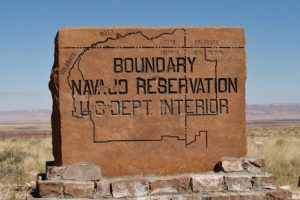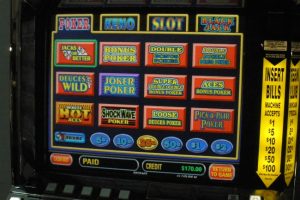 Arizona’s efforts to expand its gambling market seems to be a long shot for the state. On Wednesday this week, an attorney representing Arizona’s largest tribe, and more precisely Navajo Nation, warned state legislators that their plans to tax electronic keno games in bars and clubs is to violate Navajo Nation’s gaming compact with the state.
Arizona’s efforts to expand its gambling market seems to be a long shot for the state. On Wednesday this week, an attorney representing Arizona’s largest tribe, and more precisely Navajo Nation, warned state legislators that their plans to tax electronic keno games in bars and clubs is to violate Navajo Nation’s gaming compact with the state.
This Wednesday, Steven Hart, representing the Navajo Nation, warned the members of the Senate Government Committee that the 2002 compact between the state and Navajo Nation gives exclusive rights to the tribe to operate casino-style games. The compact also restricts the state from allowing non-tribal entities to offer commercial casino games.
Mr. Hart noted that the tribes are paying approximately $100 million a year to the state in order to keep their exclusive rights. He added that regulating keno games would violate the American Indian tribes’ exclusive rights, as keno games are identical to casino-style games such as slots or video poker. The player pulls a lever or pushes a button, while watching a row of symbols to spin.
It is important to note that Arizona’s 2002 gaming compacts with American Indian tribes state that if the state violates their rights and allow non-tribal operators to offer casino-style games, the tribes are not obliged to comply with the terms of the compact anymore. Mr. Hart believes that keno is not grandfathered under the tribal gaming compact, which means that its regulation would violate the tribe’s exclusive rights.
Some time ago, the American gambling world has witnessed a similar scenario when Connecticut’s attorney general told state legislators that their plans to regulate daily fantasy sports contests could violate gaming compacts with the state’s tribal casino operators.
However, Navajo Nation is not the only entity that opposes Borrelli’s bill. The Center for Arizona Policy also seems to be up in arms over the proposed gambling expansion. Cathi Herrod, president of the Center for Arizona Policy explained that gambling expansion will exacerbate gambling-related problems among locals.
The Bill Evolves from Bingo to Keno Games Expansion
 For quite some time, Arizona is toying with the idea to legalize gambling in bars and clubs. A bill sponsored by Sen. Sonny Borrelli suggested to tax bingo games. However, the bill hit the rocks as bingo games are considered to be casino-style games. As a result, Sen. Borrelli has changed the bill significantly, suggesting the regulation of electronic keno games instead of bingo.
For quite some time, Arizona is toying with the idea to legalize gambling in bars and clubs. A bill sponsored by Sen. Sonny Borrelli suggested to tax bingo games. However, the bill hit the rocks as bingo games are considered to be casino-style games. As a result, Sen. Borrelli has changed the bill significantly, suggesting the regulation of electronic keno games instead of bingo.
Sen. Borrelli explained that keno games are similar to lottery games. In that sense, the regulation of keno games do not violate Navajo Nation’s gaming contract and these will bring fresh money to the local governments and the state. But the problem is the that the tribal nation classifies keno games as gambling. The clamor keeps on growing, but the official agreed to withdraw his legislation from consideration for now.



















